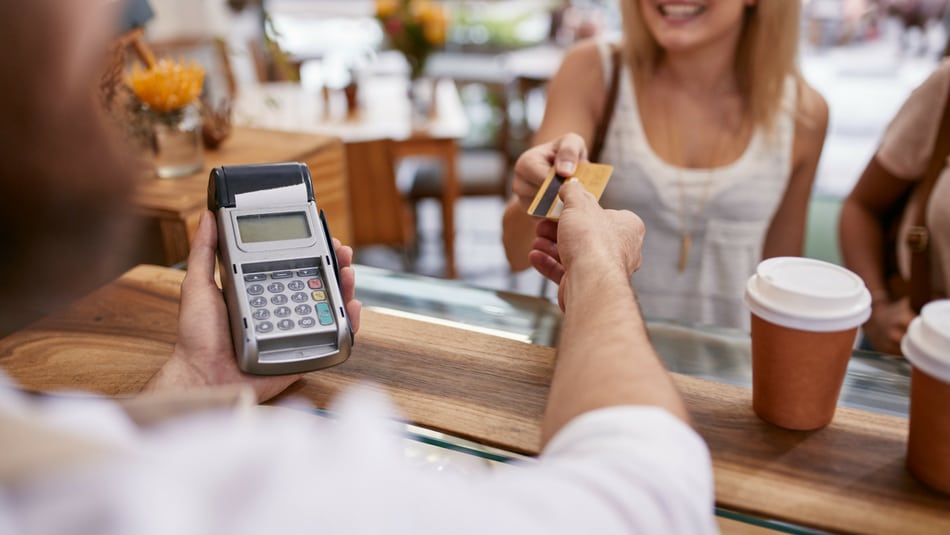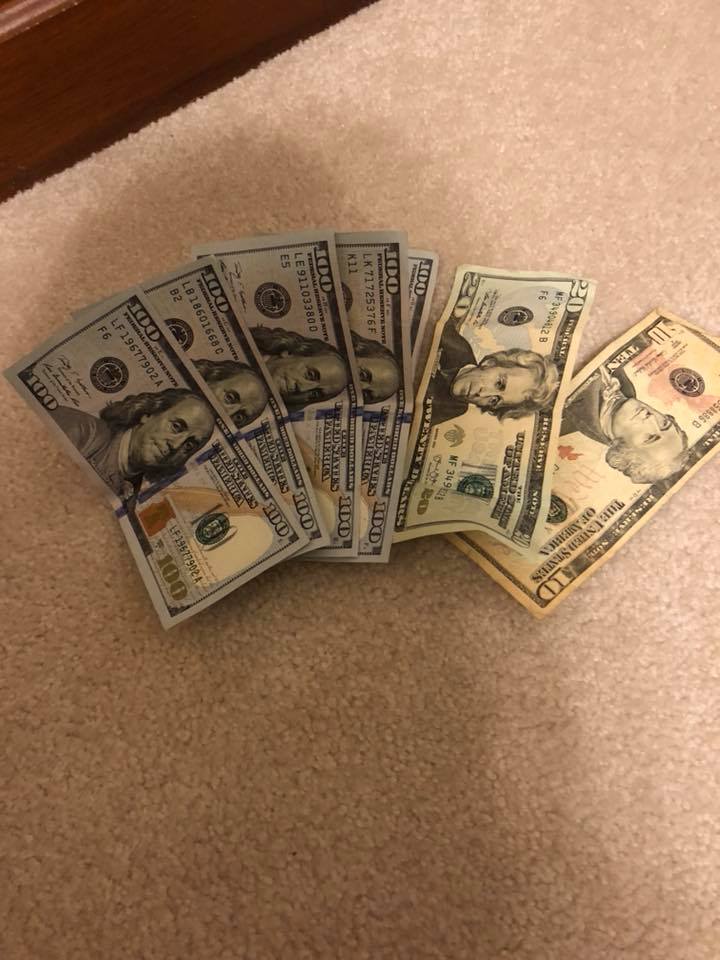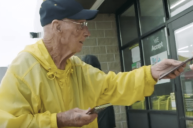Sometimes the smallest gesture can mean the most. As an act of kindness, you pay for the coffee of the person behind you in line, thinking you'll merely brighten someone else's day, but instead you're setting off a chain of good that inspires hope, community, and generosity in the other person, in people around you, and even in yourself.
Mackenzie Mauller was getting something to drink at her local Ohio Starbucks earlier this month when she decided to pay for the order of the person behind her in line. Mauller didn't say anything to the person at the time and didn't realize what an effect her simple kindness had on the woman until she found a handwritten note in her mailbox later that day.
Nicole Clawson, who just happens to live a few houses away from Mauller, was in the midst of a rough stretch. Her father recently passed away and in addition to that painful loss, he also babysat Clawson's children while she worked. When her babysitter called to tell her she was sick and couldn't make it, Clawson had to take the day off. She decided to buy her kids breakfast and then get herself coffee as a treat, even though she felt guilty because she'd decided to be a stay-at-home mom and wasn't "emotionally and financially prepared to quit working."
When Mauller picked up the tab for Clawson's coffee, she didn't realize the other woman needed a smile and a sense of hope just as much as she needed coffee. And when Clawson was driving home, she was surprised to see that the person who had paid for her coffee was pulling into the driveway of a house just down the street.
Clawson left a heartfelt note for Mauller, who posted it on Twitter. Mauller was so touched by her words that wrote an own note back with an offer to babysit for Clawson.
THANK YOU FOR THE COFFEE, FINDING ME (SINCE WE'RE NEIGHBORS) TO THANK ME FOR WRITING YOU A CARD AND OFFERING TO BABYSIT ON TOP OF EVERYTHING ELSE TO HELP ME OUT. YOU TRULY ARE THE SWEETEST AND A WONDERFUL PERSON WHO DESERVES THE RECOGNITION!!
— nicoleclawson (@nicoleclawson12) August 10, 2018
Isolation is bad for humans, even if you're an introvert. We need to engage with other people, at least from time to time. Studies have shown that if we don't, it's bad for our health. (Literally—science says that being isolated can kill you.) Acts of kindness that lead to getting to know someone else better can make you a healthier person.
Kindness has a clear effect on your body and your brain. When you do something good, your body produces serotonin, a chemical that makes you feel good, and endorphins, chemicals that reduce pain. Being kind lowers your blood pressure, decreases stress, helps protect you against heart disease, and slows your aging process
Your act of kindness means a lot - My daughter found this on her car and it brought tears. Have a great day. pic.twitter.com/kckukBmQhW
— Patricia Zeman (@Peezareno) August 9, 2018
Basically, kindness is the wonder drug. It also affects the people around you, even past the person to whom you are being kind. Witnessing an act of kindness produces oxytocin, so seeing someone else be kind makes you happier.
If you need proof that one act of kindness can affect others, look at the stories of teachers in line buying school supplies. Teachers in Texas and Oklahoma both have stories about doing a school supply run and chatting with the people in line next to them, only to have those people offer to pay for the supplies when they realized that the teachers were spending their own money. (And yes, we can honor the kindness of strangers while also recognizing that teachers should not have to pay for necessary school supplies out of their own pocket.)
With a couple of these stories happening within a short amount of time, is it possible that one inspired the act of another? People reading about a generous act of kindness may be inspired to do something similar simply because they felt good when they read the story.
Generosity can also inspire another act of kindness in real time. Take the story of Chicago teacher Kimber Bermudez. She was flying to Florida to visit her parents and started chatting with a seatmate about the charter school she teaches first grade at, where a lot of the students are classified as low income and have limited English language skills. When her seatmate asked for her school's contact information for a possible donation, she gladly gave it but didn't think anything else of it.
Then another passenger tapped her on the shoulder. He apologized for listening in on her conversation, then handed her some cash and told her to "do something amazing with it." Then after the plane landed, another man sitting across from her offered her a donation as well. Then the man sitting in front her gave, too.
Being kind sets off a kind of positive feedback loop. One act makes you feel good, which leads to another act, which makes you feel good again. It becomes practice reinforced by positive feelings. The best thing about it is that the benefit can be all internal; while stories about acts of kindness may go viral online, many others happen quietly and people still benefit from the good feelings.
It helps that acts of kindness don't generally have an expectation of external reward. For example, Mauller wasn't looking for a public thank you, she just wanted to do something nice for a stranger. But it's also why we can be surprised by people doing kind things for no apparent reason.
Wildfires are sweeping through parts of California right now and firefighters are doing everything they can to save lives, homes, and businesses. You might think that the act of saving someone's home is kindness enough, but to firefighters, that's just the job.
The kindness, residents report, is in leaving food and water for house pets and farm animals that weren't able to evacuate or watering a garden that had escaped the fire. One family had been watching the flames approach their house via cameras and then a firefighter contacted them through their video doorbell to let them know the house was safe.
In today's world, where everyone is always on their electronic device and the news always seems to be bad, making room for a simple act of kindness can be revolutionary. So today, do yourself a kindness and put a smile on someone else's face.





